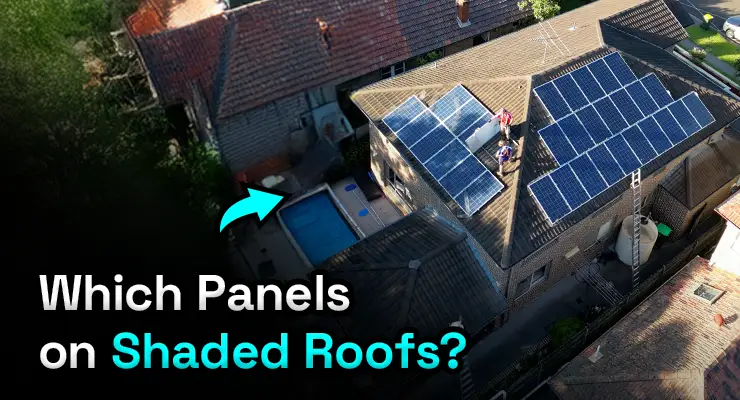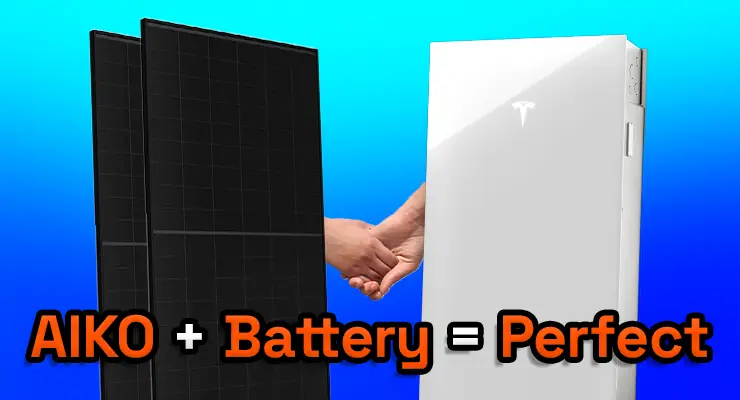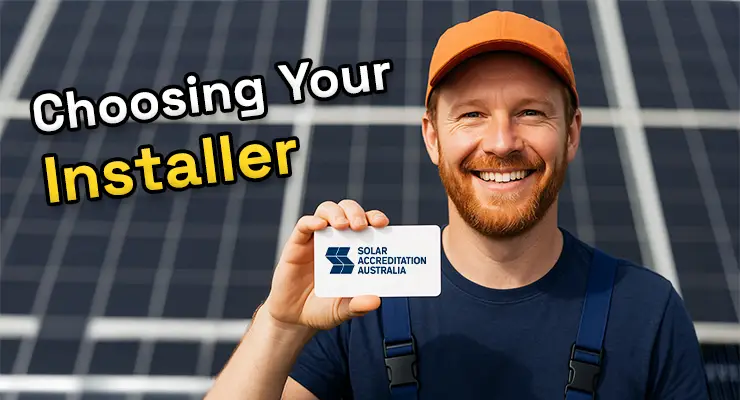Fast read
After agreeing to a solar & battery installation quote, the solar panel installer increases the price. First, discuss the change with the installer, presenting the original quote.
Sometimes unforeseen issues, like roof problems, or market factors, like variable STC prices or material cost surges because of events like COVID, can drive up costs. If the new price seems unreasonable, consider cancelling and seeking quotes from other companies.
If you believe the installer's actions are deceptive, you can file a claim with the state's Office of Fair Trading. However, pursuing a complaint can strain the installer relationship, potentially affecting service quality. Often, it's preferable to make a compromise for a fair outcome or find a different installer. In such instances, it is not a guarantee that the new price will be lower.
What are your options when your solar installer increases the quoted price?
You’ve accepted a solar and battery system quote price, making preparations for the installation. However, the installer now informs you that they have changed the price quoted, despite your belief that the price was non-negotiable. If the initial agreement was for a fixed price, it’s natural to feel confused or frustrated in such a situation.
But maybe there is a misunderstanding and what can you do from here?
To understand the overall picture please note that solar alone or solar and battery combo quotes usually have an expiry date attached.
Do not get a solar and battery quote and then 12 months later call the installer and expect the solar quote price to still be valid. In such an instance a variation is justified, especially if labour and materials have increased.
Understand the reason(s) for the installer changing the quoted price
The first thing would be to have a good talk with the installer to understand why the costs have increased. Open dialogue is often the best way to find a mutual understanding and solution.
Bring evidence of the original solar quote to this discussion to avoid any accusations and cause tensions and aggravations. Just make your logical points and reasons that you believe the original solar quote price included these additional costs

There can be genuine reasons for the cost increase
So if the cost increases are genuine, and your solar quote period has expired the installer may have no choice but to increase the installation cost. So you need to be in tune and differentiate between genuine cost increases and unjustified ones.
It is possible that in these circumstances, where labour or material have seen an increase if they do not increase the solar PV system price they may end up not making much profit or even losing money on the job. If they lose money on too many jobs and go out of business, then your after-sales service is compromised, so that’s actually not in your interest.
Another example of this situation would be the installer coming across an issue with your roof that was not easily identifiable during the initial site inspection, meaning they need to make changes to the solar power system design or the work method.
Can the solar and battery quote price always be fixed?
Always remember that the solar quote price remains preliminary until a qualified electrician or the company owner completes a final site inspection.
The installer will need to do this to confirm any additional requirements such as meter box upgrade requirements, access to roof space for cable runs, fixing points for the panels or extra bollards in front of the battery. The final pre-install inspection is crucial as it ensures that all necessary elements have been accounted for, avoiding surprises during the installation process.
It is worth noting that there have been cases over the years where installers have had to go back to customers and increase their prices on outstanding solar quotes, after issues have been discovered, so while not common, it is also not a rare occurrence.
When the rebate changes, prices can change
One other key reason for a price change can be the variance in small-scale technology certificate (STC) market prices (“the solar rebate”). While for several years they have been mostly stable around the $35 to $37 mark, there have been cases where the market price of these have dropped suddenly. In July 2017 for example, prices dropped over 20% in as little as 1 week.
This meant installers had to reduce the price of the STCs that they could offer as a discount. Otherwise, they would make a loss on every job and risk the future of their business.
During COVID and other market shocks, material prices have increased. Because of decreased availability, logistic challenges, and rising shipping costs, businesses had to raise prices to cover these significant cost hikes. Thus, even if a price or quote was set, sometimes market conditions and business circumstances shift, forcing companies to adjust prices to survive.

So what can I do if the solar quote price is too high for me?
If you feel that the price increases are unreasonable and you cannot negotiate a satisfactory outcome with your installer, your next steps would be to negotiate the cancellation of the order -in a way that you do not lose all or even some of your deposit.
After cancelling the order you can then talk to other solar companies if they can offer alternative solar and battery quotes for your home and go ahead with one of these. In some cases, you will find that the whole industry has increased prices, so you might not be able to find a better deal.
If you firmly believe the solar installer should honour the original price and think the change is unfair or deceptive, you can file a claim with your state’s Office of Fair Trading for them to investigate.
This means they may negotiate with the solar installer on your behalf and possibly reach a point which means you get a satisfactory resolution. Given the overall time such complaints take, and as the solar system installation has not commenced, it’s not a road we recommend – if you value your own time.
They show a price but never offer it scam
If you have been studying our website you would have discovered we do not like crap solar and we also are the enemy of scam solar.
Solar quotes often follow such price hooks and may include add-ons for reasons like steep roofs (even if your roof matches the typical 22-degree angle in Australia), travel time, extra safety measures, and other factors. Often these additional costs are just a trick to inflate the cheap price – that was never realistic in the first place.
What’s my best option if your installer changes the quoted price?
You might have heard of the Office of Fair Trading or equivalent in other States. This Department for Consumer Protection is there to ensure that businesses operate fairly and transparently, providing consumers with a level of protection.
While it would be nice to get the original price from the solar installer, if you are going to the extent of a complaint to the Office of Fair Trading, the state of the relationship with the solar installer is not going to be great. This applies even if you get a decision in your favour. The solar installer is likely to resent this, and probably not be easy to work with for the installation or for ongoing service and support during the ongoing life of the solar panel system.
In the long run, negotiating a fair compromise or cancelling the order and looking for another solar installer to proceed with is better than going through the tedious complaints process.



